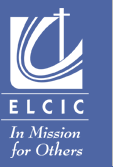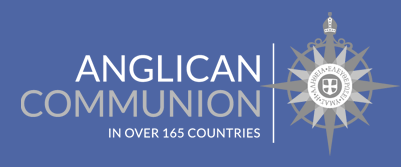Subject: Anglican Communion Safe Church Charter and Protocols
Moved By: The Ven. Robert Camara
Seconded By: The Ven. Tanya Phibbs
Be it resolved that this General Synod:
- Adopt The Anglican Communion Charter for the Safety of People and the Protocol for the Disclosure of Ministry Suitability Information between the Churches of the Anglican Communion;
- Commend the Charter to dioceses and other bodies of The Anglican Church of Canada for use in the revision and creation of policies and training materials for safeguarding and right conduct;
- Direct Council of General Synod to review the policy base of the General Synod in light of the Charter, reporting back to the General Synod of 2022 on developments and with revised policies;
- Offer its gratitude to the Anglican Communion Safe Church Commission for its work in creating the Charter for the Safety of Persons and its Protocols; and
- Direct the Council of General Synod to include discussion of safe church policy and practice in the agenda of each triennium.
Source: Faith, Worship, and Ministry Coordinating Committee
Submitted By: Faith, Worship, and Ministry Coordinating Committee
Does this motion contain within it any financial implications? Yes – Possibly No
Possible implications involving staff and other personnel time for meeting for the work, though the work could be done within the already-scheduled meetings of Officers and the Council of General Synod.
If yes, has the General Synod Expenditures Committee considered the implications? Yes No
EXPLANATORY NOTE/BACKGROUND
The Anglican Communion Charter for the Safety of People, along with the Protocol for Disclosure of Ministry Suitability by Provinces of the Anglican Communion was adopted in October 2012 by the Anglican Consultative Council (ACC-15). The Charter is the result of several years of work by the Anglican Communion Safe Church Network and can be seen as a model for best practice standards. Both lay persons and clergy of the Anglican Church of Canada were active participants in this global initiative that led to the Charter.
As set out in the Charter, the witness of Scripture recognises and affirms God’s love for all members of the human family and the priority given in Jesus’ ministry to children and the vulnerable of society. The five Commitments provide a framework for effective Safe Church policies and procedures.
What is the Anglican Communion Safe Church Commission?
The Anglican Communion Safe Church Commission (ACSCC) is an international body which was established at the request of the Anglican Consultative Council at its meeting in Lusaka, Zambia, in 2016 (ACC-16). Its creation was recommended by the Anglican Communion Safe Church Network with an objective of developing “International Guidelines to enhance the safety of all persons—especially children, young people and vulnerable adults—within the provinces of the Anglican Communion… The establishment of the Anglican Communion Safe Church Commission was requested in one of four safeguarding resolutions approved by ACC-16. Its creation builds on the adoption by ACC-15 of the Charter for the Safety of People within the Churches of the Anglican Communion”. The Commission, made up of thirteen representatives of the provinces of the Communion, including Ms. Mary Wells of Canada, has produced draft Guidelines for the Safety of People.
These Guidelines will be presented for approval at the Anglican Consultative Council (ACC 17) in Hong Kong in April/May 2019, with a view to being presented at the Lambeth Conference in 2020.
The following are the relevant resolutions of ACC 16:
Charter:
The Anglican Consultative Council recognising and affirming:
a) the witness of Scripture to God’s love for all members of the human family and the priority given in Jesus’ ministry to children and the vulnerable of society;
b) the resolution of the Lambeth Conference in 1998 that each member Church represented make an intentional effort to work toward eliminating abuses affecting women and children (Resolution 1.3);
c) the commitment of the Anglican Consultative Council in 2005 to the highest standards of care for all young and vulnerable people, seeking to ensure their protection (ACC Resolution 13.50);
d) the testimony of the Lambeth Conference in 2008 to the many forms of abuse of power within society as well as the church from which women and children suffer disproportionately, and the challenge to reclaim the gospel truth of the dignity of the human person and to exercise power in ways that would always be life giving
e) the call of the Anglican Consultative Council in 2009 to member Churches to take appropriate steps to assist the healing of indigenous families, including the protection of women and children from violence and human trafficking (ACC Resolutions 14.19 and 14.33);
f) the statement of the Primates in 2011 that our churches must accept responsibility for our own part in perpetuating oppressive attitudes towards women, and in penitence and faith we must move forward in such a way that our churches truly become a living witness to our belief that both women and men are made in the image of God (Letter to the Churches of the Anglican Communion);
g) commits itself to promoting the physical, emotional and spiritual welfare and safety of all people, especially children, young people and vulnerable adults, within the member churches of the Anglican Communion, and to this end calls upon all member churches to adopt and implement the Charter for the Safety of People within the Churches of the Anglican Communion, and report to the next meeting of the Anglican Consultative Council as to steps taken to adopt and implement the Charter.
Protocol:
Recognising that:
- Clause 4 of the Charter for the safety of people within the churches of the Anglican Communion adopted by the Anglican Consultative Council in October 2012 contains the following commitment: “We will have and implement policies and procedures to assess the suitability of persons for ordination as clergy or appointment to positions of responsibility in the church including checking their background.”
- Clergy and lay persons who have undertaken ministry in one Province regularly undertake ministry in another Province.
- It is essential that those persons or bodies with responsibility for authorising clergy and lay persons to undertake ministry in their Province have accurate and complete information for the assessment of their suitability for ministry from the Province or Provinces in which they have previously been authorised for ministry.
This Council approves the following Protocol for disclosure of ministry suitability information between the churches of the Anglican Communion, and requests each Province to implement the Protocol and report to the next meeting of the Anglican Consultative Council as to its implementation. Protocol for the disclosure of ministry suitability information between the churches of the Anglican Communion
PROCEDURE FOR ADOPTION (G)
In the normal course, an ordinary motion must be passed by a majority of the members of General Synod present and voting together. Six members of General Synod may, prior to the question being put, require a vote by Orders, with a majority of each Order being necessary to pass.
If a question passes on a Vote by Orders, any six members (two from each of three different dioceses) may immediately before the next item of business require a vote to be taken by dioceses. A motion passes if a majority (or a tie) of dioceses vote in favour.
Source: Sections 4 and 5 of the Declaration of Principles and sections 18, 19 and 20 of the Rules of Order and Procedure.


